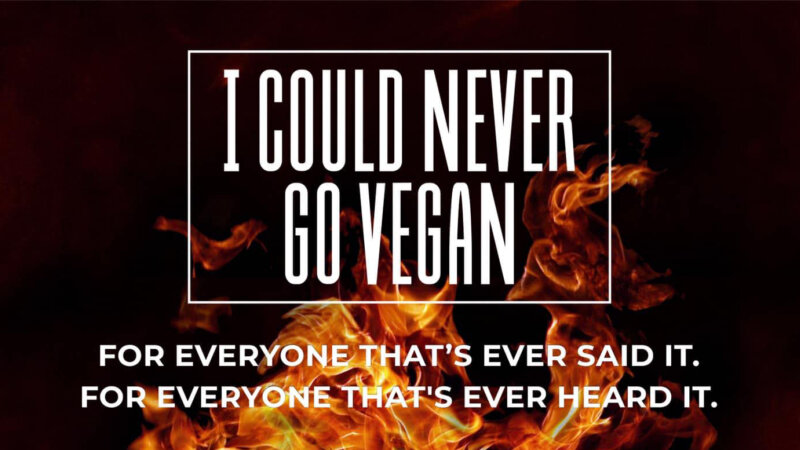Filmreel
DOC/FEST 2013, PART 2.
I had the pleasure of reviewing some standout films at this year's Doc/Fest. Inadvertently, I found that the flicks I happened to watch paired with another. Tenuously linked in places, perhaps, but I couldn't really ignore the coincidental similarities, so excuse me if it all gets a little bit too convenient.
Two films exploring the theme of outsider characters and mental health; two posthumous bio-docs about two groundbreaking minority comics and an opening and closing doc in which the ghosts of the cold war loom large, exposing the ease with which morality can be manipulated by autocratic powers.
Pussy Riot: A Punk Prayer // The Act of Killing.
“We're not politicians. We're artists and musicians fighting against the political situation.” Opening this year's festival was Pussy Riot: A Punk Prayer, detailing the plight of Nadia Tolokonnikova, Masha Alyokhina and Katia Samutsevich, three members of the Russian feminist art collective Pussy Riot, who were charged with hooliganism in 2012 for performing at the altar of the Cathedral of Christ the Saviour in Moscow. Known for their impromptu guerrilla gigs, their intense two-minute shows have them high kicking and shouting protest slogans over the top of trashy riffs. Footage of the collective is cut up with the trial and interviews with the women's families. Lampooning the theatricality of the trial, the judicial system utilises the women as pawns to set an example to dissenters, particularly those who use critical art as their means of protest. As the women's background of protest is revealed alongside their motives, their trial is easily ridiculed with lengthy monologues from the three, highlighting the hypocrisy and heavy handedness of the Russian Orthodox Church and Putin's lackeys. “The Russian government sees feminism as an extreme position,” explains Katia. The best example of this being an orthodox “jihadist” - who looks undeniably like a Hell’s Angel - confidently announcing that the best translation of the collective's name is “deranged vaginas”. Orthodox Russians and Putinists alike remain vehemently against Pussy Riot. “It's as if someone walked into the heart of Russia and took a shit” relates one lady at an anti Pussy Riot demonstration. Though members of the band remain apologetic for offending anyone due to the spontaneity of their performance, they vocalise their support for all faiths: “What we describe when we sing 'It's God Shit' is a relationship opposing the union of church and state.” An extraordinary doc that won the Special Jury Prize, The Act of Killing has already received a great deal of attention, and deservedly so. Set in Sumatra and created over a seven-year period, director Joshua Oppenheimer was previously making a documentary about the victims of government mandated anti-communist massacres committed in 1965-66. Unexpectedly, Oppenheimer's subjects ended up being the perpetrators of the murders and the focus of the film is purely on the sadistic acts that were committed with such ease. The killers were formerly cinema ticket touts and gangsters (or “freemen”, as they frequently redress themselves as), employed to carry out the dirty work of the Suharto regime. They are a microcosm of mandated massacres going on around Indonesia during this time, when it is estimated that one million ethnic Chinese and supposed communists were slaughtered. The main focus lies with Anwar Congo, an ageing former leader of the Sumatran paramilitary group Pancasila Youth who is plagued by nightmares. Due to the anti-communist government and the propaganda that is still a mainstay in Indonesian society, none of the killers have been held accountable and you'll be hard pressed to find sincere moments of remorse on their part. Though it was essentially Anwar's job, this open secret and the bravado of the killers is almost impossible to comprehend. Most notable is the blurring of the line between fiction and reality, as the killers are granted the means to re-live their methods of murder via a low-budget, surreal series of filmed re-enactments in which they play themselves and rope in a number of friends and seemingly reluctant women and children to bring these atrocities to the big screen. Strange, grisly re-enactments with unconvincing prosthetics are dotted among Anwar's accounts of his preferred means of strangulation using metal wire and horrific stories of decapitation, all the while with him remaining remarkably unfazed. Along with many others, I found myself laughing a lot during these re-enactments, partly out of horror but mostly because there are some genuinely rib-tickling moments. Anwar's overweight, pony-tailed sidekick Herman is constantly dressed in drag for reasons often unknown and the bizarre homage to American cinema adds an air of dress-up and make-believe to these horribly real events, with Anwar revealing that Al Pacino is his favourite actor and that he has a soft spot for Westerns. Though it has drawn criticism for its lack of political and historical context - this is one thing I initially found problematic - it's worth remembering that the film isn't a dry historical account of what happened; it's a portrait of brutish nature allowed to manifest under government supervision. A Punk Prayer and The Act of Killing are compelling reminders of the way propaganda and critical art can be manipulated to fulfil particular agendas, the outcome of which depends largely on the persuasion of those in power. A tidy inversion of circumstances sees Anwar and his colleagues rendered heroes on Indonesian television for abusing the most basic of human rights, while Pussy Riot are vilified in their own country but considered prisoners of conscience by many outside of Russia.Richard Pryor: Omit the Logic // I Am Divine.
As far as biographical documentaries go, I often feel a little short changed, deriving little satisfaction in sitting through an hour and a half of friends using shed loads of hyperbole and sycophancy to discuss a loved one, that being in part the nature and purpose of biopic. The subjects are undeniably fascinating, but both Richard Pryor: Omit the Logic and I Am Divine are the standard chronological tracking of two careers that I was really hoping they wouldn't be. As tributes to entertainers existing on the periphery of taste and respectability, many parallels exist between the two; addiction, long-due critical acclaim, acceptance and eventual forays into Hollywood. Although interviews with Dave Chapelle, Whoopi Goldberg, Jennifer Lee (wife number four and seven) and long-time collaborator Paul Mooney shed more light on Pryor as a behemoth of stand-up comedy, more discussion of his influence wouldn't have gone amiss. Live clips give a great taster of his incredible visual humour, skilled impressions and ability to hold a black and white crowd despite tackling tricky racial subjects. I would have been interested in finding out more about Pryor's early comic career, and perhaps less about the success and excess presented using ritzy showbiz music accompanied by a montage of photos and clippings of box office ratings. Compromise proved to be an obstacle in the way of Pryor's initial success and a big issue when making his primetime show for NBC. Overt digs were scattered throughout The Richard Pryor Show. The original introduction depicted a beaming Pryor announcing that he would never sell out, as the camera slowly pans out to reveal him butt naked, without genitals, smooth as a ken doll. Naturally NBC refused to air it. As usual Pryor managed to extract material from the most debasing of personal circumstance. His shotgun wedding to Deborah McGuire while still engaged to Pam Grier is punctuated with an anecdote about the wedding cake mistakenly reading “Congratulations Pam and Richard” obscured by a bunch of flowers. The film also dips carefully into Pryor's childhood growing up in a brothel, the family business headed by his matriarchal grandmother who grounded him until her death. His rabid cocaine habit culminating in the notorious freebasing incident in which he set himself on fire, later comparing himself to a human matchstick. He had people constantly asking themselves “Is it ok to laugh at this?” while choking back tears of laughter. A clip of Pryor before the onset of MS explaining that he wanted to be remembered for bringing joy and that people should laugh at the sight of a photograph of his face brings the film to a moving final halt. Dealing in vulgarity in all its forms, and obtaining success as a performer representing hugely unrepresented minorities, you'd imagine a creative subject would call for a more creative tribute to their life and work, which is why I was glad that I Am Divine was followed by a screening of Female Trouble, John Water's 1974 trashy black comedy, starring Divine in all her unabashedly repulsive glory. Overweight and underdressed, Divine (born Harris Glenn Milstead) was possibly the first face of drag. Divine's relationship through the camera with John Waters, long-time friend and collaborator, is well documented. Together they were lauded the king and queen of sleaze, creating Pink Flamingos, Mondo Trasho, Female Trouble and the original Hairspray, a camp picture of segregation in the 1960s with a brilliant soundtrack, not to be mistaken with the remake. He's perhaps most famous for eating a freshly-laid dog shit in Pink Flamingos. At the behest of Waters, cast and crew followed the dog around all day only to be met with the most underwhelming turd ever produced. Attempts to forgo the character and be himself proved a struggle, as seen with the alternating personal pronouns used throughout the documentary (and this piece). He wanted to be recognised for his versatile acting and not mistaken for her filthy behaviour. “I used to say I'm going to dinner with Divine and people would say, "What's he gonna do, take a shit on the table?” Sexy, terrifying, revolting and unexpectedly endearing, she's presented not so much as a vehicle for sexual expression and bad taste, but a monster truck, and a genuinely lovely bloke as well.NCR: Not Criminally Responsible // The Man Whose Mind Exploded.
One of two documentaries directed by John Kastner relating to mental illness, Not Criminally Responsible follows Sean Clifton, a sufferer of schizophrenia and severe OCD. Previously seen as a harmless eccentric in his local town, Sean inexplicably snaps one day outside a grocery store and stabs a passerby, leading to his detainment for eight years in a mental health rehabilitation centre. The plodding pace of the crime re-enactment is interspersed with talking head interviews with the police investigator and victim’s family, making the first half feel slightly like an episode of Canada’s Most Wanted. Although the rituals that Clifton performed - it would take him up to an hour to get through the doorway - allow viewers to understand the debilitating effects of OCD on a visual level, it is only when he himself is interviewed that we get a sense of how he has been affected. Perhaps the frenzied re-enactment editing is intentional, in that it reflects one of the few widespread representations we have of mental illness in society - through sensationalist tabloid horror stories. Lightly touching on debates surrounding punishment, rehabilitation and forgiveness, the film’s title is perhaps a little deceptive as it barely grapples with the insinuated theme of responsibility and free will in relation to mental health. As a touching character study and tracking of personal development, the film certainly attempts to thread together the environmental and genetic factors contributing to Sean’s condition. Similarly to Not Criminally Responsible, The Man Whose Mind Exploded relies less on scientific fact regarding mental health than on an outsider subject which preaches tolerance and acceptance of those who don't conform to societies norms. “A movie about brain damage, memory, art, cocks, faith and love”, the story of tattooed eccentric Drako Zarhazar, survivor of two nervous breakdowns, two comas and two suicide attempts, gently unfolds through a series of encounters between Drako and filmmaker Toby Amies. The narrative dips in and out of the past and present, as tales of Drako's colourful past are told by his nephew Marc (“I always knew him as cool Uncle Tony”) and sister Ra, with whom he speaks to primarily in French. Drako himself recounts a number of times the story of him being picked up to model for Dali, “who had requested an angel”. The development of the friendship between Amies and Drako is powerfully displayed as Amies' frequent visits turn him more into the role of carer than opportunistic voyeur. Drako lives in a small council flat in Brighton, he hoards hundreds of notes and homemade wall hangings as reminders of memories past and present. As clippings of naked men with massive erections dangle mischievously next to guests throughout the film, attempts to subtly disguise the cut-outs by manoeuvring people into certain positions fail humorously. But Drako isn’t merely an eccentric outsider. After a serious car crash he suffers from retrograde amnesia, and embraces his memory loss in a sense by employing his own philosophy, constantly reeling out aphorisms to live by – “I live in the here and now”, and his particular favourite, “Trust, absolute, unconditional”, which allows him to make sense of his condition. Questions of exploitation are addressed by Amies himself as he directly asks Drako if he feels used while the latter participates in his favourite past time: self nipple stimulation. He exclaims that, “I love being used, I put myself out there.” )
Filed under:





